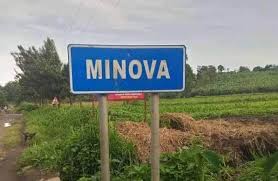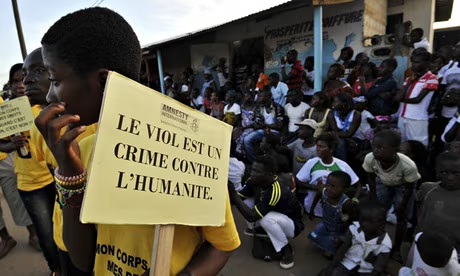Banjul, 3 November 2022: IHRDA and an Ivorian lawyer, on behalf of 4 survivors of rape during the 2010/2011 post-electoral violence in Côte d’Ivoire, have filed a case against Côte d’Ivoire before the Court of Justice of the Economic Community of West African States (the ECOWAS Court), to demand justice. The case, filed 31 October 2022, follows an April 2021 judgement of the Abidjan Criminal Tribunal that failed to establish the responsibility of State forces in the violations.
According to the facts of the case, the Plaintiffs were sexually assaulted between December 2010 and December 2011, during widespread violence and armed conflict that erupted after the 2010 presidential election in Côte d’Ivoire. During this period, 3 of the Plaintiffs equally lost their daughters, some of whom had also been raped. In December 2012, the Plaintiffs initiated legal proceedings in Cote d’Ivoire. In April 2021, after lengthy trials, the Abidjan Criminal Tribunal declared the head of a militia to be responsible for the violations against one of the Plaintiffs, while dismissing the complaints of the other Plaintiffs on ground that the accused persons were covered by the August 2018 amnesty passed by government for perpetrators of offences relating to the 2010/2011 post-electoral violence. Besides exonerating the State from its duty to account for violations perpetrated by both State forces and non-State armed groups, the Court ruling undermines the Plaintiffs’ right to remedy.
The Plaintiffs allege that Côte d’Ivoire has violated their right to life and health, and has also failed in its obligation to guarantee their right to fair trial, dignity, moral integrity and personal security. These are rights and obligations enshrined in several human rights legal instruments binding on Côte d’Ivoire, notably the African Charter on Human and Peoples’ Rights, the Protocol to the African Charter on Human and Peoples’ Rights on the Rights of Women in Africa, the Convention on the Elimination of all forms of Discrimination Against Women, and the International Convention on Civil and Political Rights.
“Impunity generally tends to breed more violations. In the 2010 post-electoral violence in Cote d’Ivoire, both State and non-State forces committed offences, and government has the duty to account. Even if government opts to grant amnesty to offenders, it still has the duty to provide remedy to victims/survivors” – IHRDA Senior Legal Officer, Eric Bizimana, noted.
The Plaintiffs request the ECOWAS Court to hold Côte d’Ivoire responsible for the alleged human rights violations; to order Côte d’Ivoire to pay them monetary compensation for damages suffered and provide them with psycho-social support; and to carry out an effective investigation into the violations, repeal the 2018 amnesty law, and prosecute the perpetrators within a reasonable time.
UPDATES:
6 March 2025: Court notifies parties of hearing scheduled for 11 March 2025.
11 March 2025: Case heard virtually and adjourned for judgement. Both parties were represented.
3 April 2025: Court notifies parties of judgement scheduled for 8 April 2025.
8 April 2025: Court passed judgement, declaring Côte d’Ivoire in violation of the victims’ right to remedy and access to justice, physical and moral integrity, dignity, security of the person, health, as well as the right to have their cause heard. Court ordered Côte d’Ivoire to effectively investigate the crimes and prosecute the perpetrators, present public apology to survivors and to pay them compensation worth fifty million FCFA (about eighty-three thousand US Dollars).







